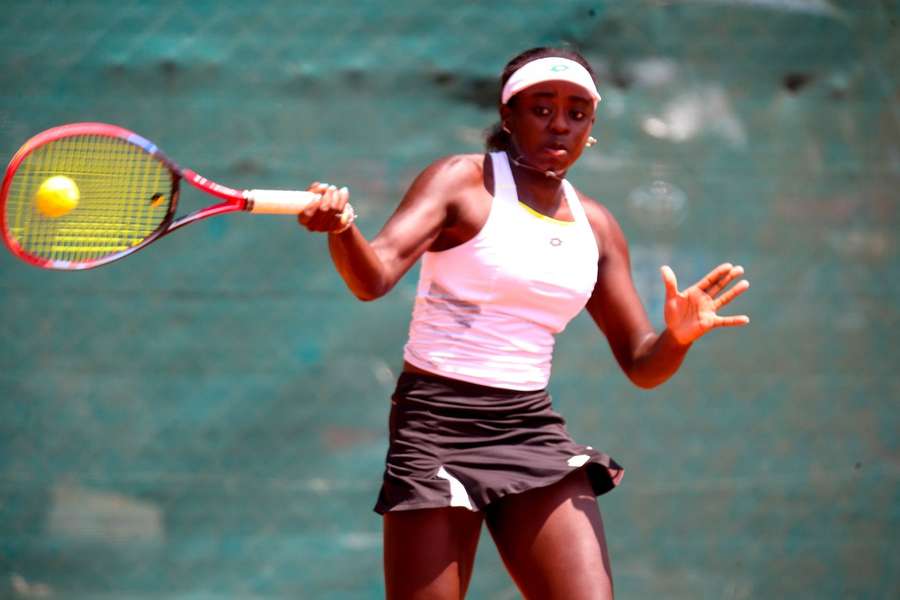The clay court season comes to its peak when the French Open kicks off on Sunday as Carlos Alcaraz, Iga Swiatek, Jannik Sinner and Aryna Sabalenka, along with the other superstars of tennis, return to the venue of the Olympic Games from last year, where history was made and legends forged.
However, if you are planning to head for the French capital in the hope of seeing tennis stars from a huge variety of nations across the world map, you should perhaps reconsider.
The French Open is not a celebration of geography, and you will see very few players from Africa, the Middle East or the less affluent areas of Asia in the French capital.
The second Grand Slam tournament of the year is an exclusive party for the privileged part of the tennis world, those who have been fortunate enough to be born in the right place in relation to their chances of building a tennis career.
When you are trying to establish a tennis career from the junior ranks and especially make the gigantic leap from being another talent to making a name for yourself in the professional world of tennis, your geographical position in the world will have an enormous bearing on whether you make it or not.
Missing pathways for African players
A good example is the missing pathway for African tennis players to reach the top. Despite tennis taking pride in being a global sport, Africa has long been forgotten, both in terms of the presence of its nations on the tours and participation at the grassroots level.
A notable exception has been Tunisia’s Ons Jabeur, who has reached No. 2 in the rankings and three Grand Slam finals, but in sub-Saharan Africa, very few players make it to elite events. The reason is a lack of access to funding that can provide the foundations for an aspiring career, with up-and-coming players being economically stretched, having to cover costs for travelling, accommodation, coaching, food, training partners, etc.
While a number of African players in recent years have made their presence known at the highest level of junior tennis, the transition to the professional circuit is a much more difficult challenge to overcome, with so few tournaments on the continent.
“Juniors are OK, we are able to hold quite a number because there is no prize money,” said Wanjiru Mbugua, the general secretary of Tennis Kenya and vice-president of the Confederation of African Tennis, to The Guardian.
“But when it comes to professional events, there is more money needed to run them, so we have very few. So any player who needs to get their points has to travel out of (their) country.”
Forced to travel from an early age
Proximity to tournaments is key in weighing up your chances of establishing a career at the ATP or WTA level. The father of Elmer Moller (ranked 108 in the world) has earlier told Flashscore that his son was forced to travel outside of Denmark from the age of 11 due to missing opportunities to take part in tournaments that could boost his ranking.
Danish Davis Cup captain Frederik Lochte Nielsen also confirmed that some countries have greater geographical advantages than others: “Germany, France and Italy have strong team tournaments where you can make money. Italy has lots of tournaments all the time, which means their players don't have to travel as much.
"I know players who have never made a notable result but have still made good money because they have been in a favourable environment to make money from tennis," Lochte Nielsen told Flashscore.
Another thing that differs widely from one country to another is how much help you get from your federation to make the leap from amateur to professional.
“In Denmark, we offer coaching and financial travel assistance to players who want to make the transition from amateur to professional, but as a rule, it costs an incredible amount of money to become a tennis player, regardless of who pays for it," Lochte Nielsen continued.
Players from Grand Slam nations enjoy huge advantages
"In Spain, there is not as much help from the federation as in the Netherlands, and if you come from a Grand Slam country, you are also financially much better off than in other countries,” added the former Danish Wimbledon winner.
Katerina Teruzzi, the former WTA player who today works as a media reporter for Flashscore, agrees that tennis youngsters from Grand Slam nations enjoy a huge advantage when it comes to establishing a professional career: “Players from countries that organise Grand Slams receive great support from their federations, they have their teams, etc.
"In the Czech Republic (for example), you don’t get any financial help until you become part of the national team. At this point, the federation helps you on the junior circuit and covers your travelling costs. But it's really tough financially to make the transition from amateur to professional."
Lochte Nielsen underlined that with small prize money and limited options for tournaments in certain parts of the world, breaking through at the ATP or WTA level will always favour players from established tennis nations: "There is no doubt that you need strong financial backing, whether it comes from investors, sponsors, parents or federations to make it as a professional tennis player.
"It is not that there are no tennis talents in Central Africa or parts of Asia, but it just requires a large cash pool to back it up, and if you don't have that, there is no doubt that a lot of talents get lost in the process."



